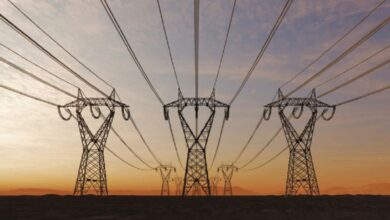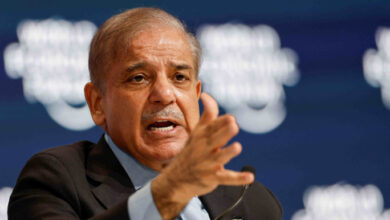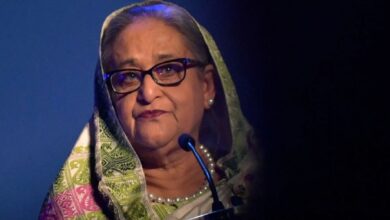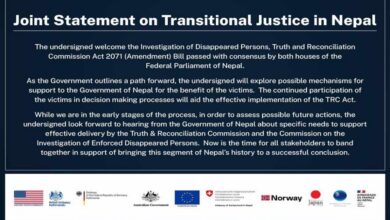Bangladesh keeps social media sites, apps offline in wake of deadly clashes
![Bangladeshi soldiers patrol in the Arambagh area after the government relaxed curfew measures, Dhaka, July 25, 2024. [Md. Hasan/BenarNews]](https://southasiancorrespondent.com/wp-content/uploads/2024/07/bd-300x200.jpeg)
By Ahammad Foyez and Kamran Reza Chowdhury
Bangladesh’s government will restore access to Google and YouTube but not social media sites or apps such as Facebook, a telecom association official said Thursday, in the aftermath of student protests that spiraled into violent clashes with security forces and claimed dozens of lives.
Meanwhile, the United Nations Human Rights chief said the Bangladesh government must soon disclose details about the “crackdown” on the protests, as human rights watchdog Amnesty International alleged security forces used “unlawful and sometimes lethal force” on demonstrators.
The students, who had been protesting quotas in some government jobs, blamed the government saying Prime Minister Sheikh Hasina ought to apologize to the nation for the lives lost.
But Hasina and the law enforcement agencies her government oversees blame the opposition.
for what was the deadliest unrest in Bangladesh in more than a decade, which claimed 197 lives, according to the country’s largest circulation daily, Prothom Alo.
Internet access remains severely restricted, because the government has not restored mobile networks via which most Bangladeshis go online.
“Google services will be available and YouTube can be viewed from today,” Aminul Hakim, president of the country’s International Internet Gateway Association, said Thursday, citing a decision from the Bangladesh Telecommunication Regulatory Commission.
“However, all the apps on Meta such as Facebook, WhatsApp, Messenger and Instagram will [still] be closed,” he told BenarNews.
Rights groups have criticized the internet blackout for depriving people of vital information.
Hasina, who had poured fuel on the protests by comparing students to collaborators with Pakistan in Bangladesh’s independence war, said those who damaged government property during the unrest should face consequences.
“The people of the country must judge them. I want justice from the people. I have no words to describe the devastation,” she said Thursday after visiting a commuter rail station that had been damaged.
‘Accounts of horrific violence’
A statement from 52 organizers of the anti-quota movement, said Hasina should take responsibility for the violence.
Additionally, they said four federal ministers – of home, law, education and road transport – must resign, as they were linked to the quotas, alleged violence by security forces, cooperation with police on campuses and similar actions.
For his part, the road transport minister, who is also a senior official in the ruling Awami League party, said he feared more violence, but did not say from whom.
“The situation could get worse as the violence perpetrators are on the prowl,” Obaidul Quader, the party’s general secretary, said at a press conference in Dhaka.
The main opposition Bangladesh Nationalist Party (BNP) criticized the continuing arrests of its supporters.
Newspaper reports quoting officials and police indicate about 4,500 people – mostly BNP supporters – were arrested from July 17-24.
“Police operations are ongoing in Dhaka day and night. Wherever the criminals are, we will arrest them,” Dhaka Metropolitan Police’s Joint Commissioner, Biplab Kumar Sarkar, told reporters.
But law enforcement operations must abide by international human rights norms, the United Nations Human Rights chief Volker Türk said in a statement Thursday.
“We understand that many people were subjected to violent attacks by groups reportedly affiliated with the government, and no effort was made to protect them,” he said.
There are “growing accounts of horrific violence” during the crackdown, Türk added.
Amnesty International, which probed the violence, also said it found that security forces had responded disproportionately during the protests.
“The heavy-handed response from the authorities has resulted in the deaths of more than 197 students, journalists, and bystanders, and injured thousands,” it said.




